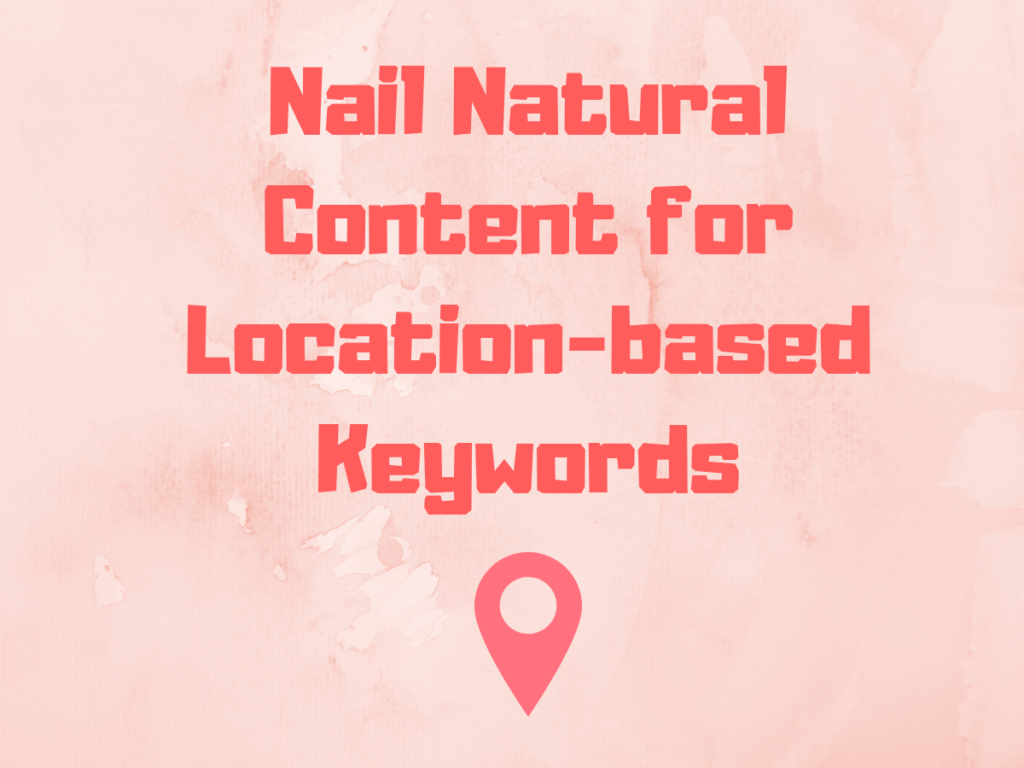
“Learn to drive with Vroom-vroom Driving Lessons Aberdeen Glasgow Stirling, experts in the business. Our Ayrshire Edinburgh Inverness driving instructors are fully-qualified and ready to help.”
Does this look familiar? Ok, maybe you’ve never seen anything quite that bad (although I certainly have) but you’ve probably come across a website that’s clearly struggling with natural content for location-based keywords. Put your hand up now if that website belongs to you. Also keep reading, because I have some hot nuggets of advice.
Look, local SEO can be tough. You want to target a certain area, be it country, city, town or hamlet, but you feel like you’re just shoehorning in irrelevant locations. Your keywords are all “plumber Coventry” and “yoga classes North West” but they don’t read naturally when you put them in your content. (Top tip: it’s ok to pop an “in” or a “the” in there, or even a cheeky “throughout” – Google doesn’t care.)
You want to target several locations too, but then half your word count is just a list of towns in Cornwall. Which is a nice geography lesson, but it’s not going to do much for your SEO. Your content shouldn’t look like spam, and it can if your location keywords look out of place. So how do you get it right?
Don’t Overdo It
The first rule of local SEO is to go easy on the keywords. You need to make it clear, to people and to search engines, where your business is located or where it services. But it looks weird if you constantly remind everyone. If someone was giving you a sales pitch and kept stopping to say “by the way, have I mentioned we’re based in Urmston?” you would find it a bit weird.
That brings me to how to make the most of your keywords when you use them.
Put Your Keywords Where They’re Needed Most
When you’re writing copy for your website, put your local keywords in prominent places so you don’t need to use them too much. Put them in your titles, headings and subheadings, and sprinkle them sparingly through your copy. The first sentence or paragraph of your copy or content is another great place to plonk your keyword (or incorporate it naturally).
Keep SEO in mind and remember to include your local keywords in the meta data on your page. The meta title and description are like flags to search engines, signalling what your content is about. They also appear in search results.
Write Relevant Local Content
Where appropriate, write content for your website that’s relevant to both your local keywords and your audience. This helps you write more naturally, instead of stuffing local keywords into strange places.
Let’s say your website is for an estate agency; you could write blog posts about the latest news in the area, especially relating to things that tenants and home buyers might be interested in. For example, you might write about building development, new businesses, community projects and events.
Here’s a couple of less obvious examples:
You own a pet shop. You can publish blog posts about local pet events and groups, the best places to walk your dog, or your recommended vets and groomers.
You’re an electrician. You could post content that’s relevant to local homeowners or business owners, such as the best places to buy DIY supplies, local building regulations, how to find local services, or businesses to visit for home decor inspiration. You could also post case studies of some of your clients.
Remember, not ALL of your content needs to be targeting local keywords. You can use more general keywords too.
Write How People Speak
When you’re writing, think about whether you would ever say what you’ve written. Even if you personally wouldn’t say it, is it something a human would say? Tone of voice and vocabulary might change depending on context, but there are some things that just don’t sound right.
If it helps, read it out loud or get someone else to read it for you. Reword or cut out anything that sounds awkward or weird.
Keep these tips in mind if you want to write natural content for local-based keywords. If you need help with either your website’s main copy or your blog content, email me at laura@laura-ellis.com.
Find out more about website copy, blog content or blog management and editing on the relevant pages.

2 thoughts on “Nail Natural Content for Location-based Keywords”
Comments are closed.